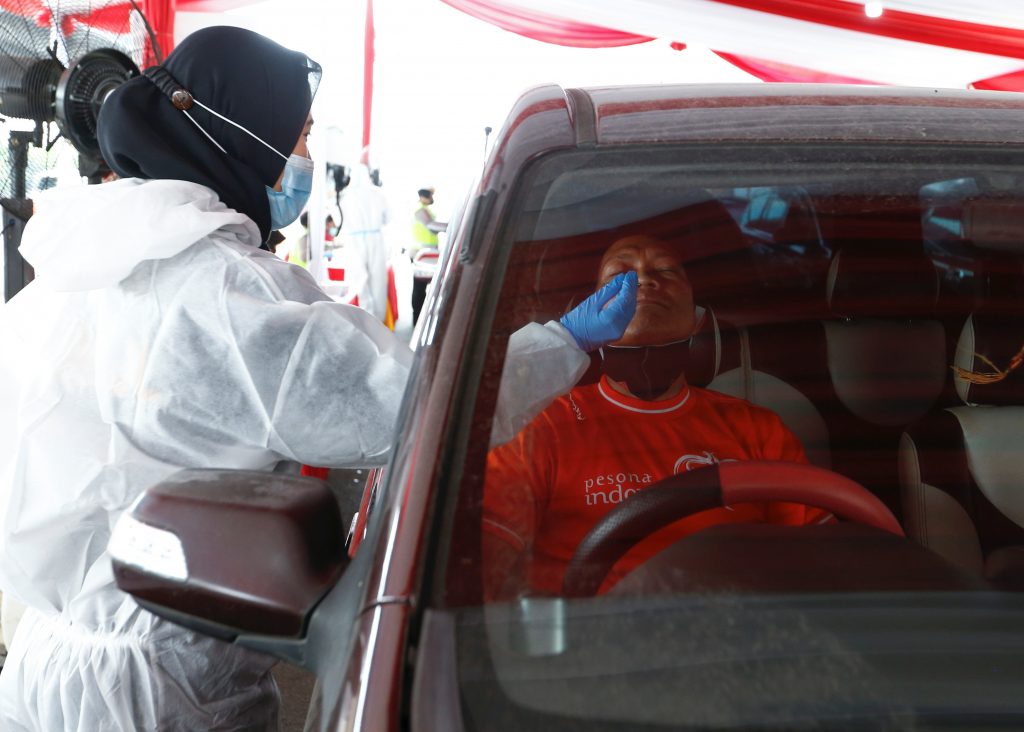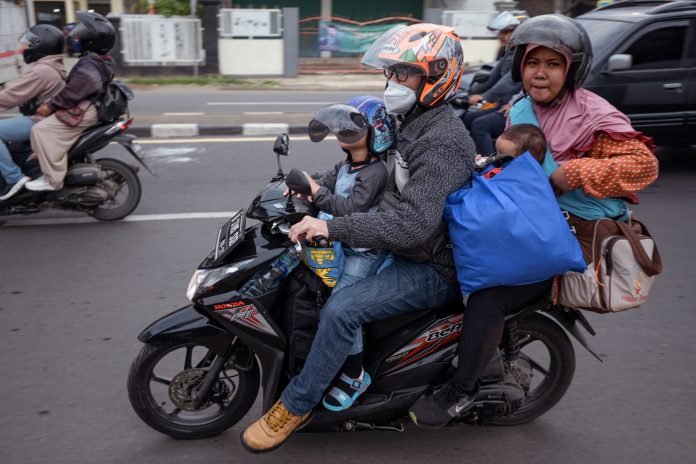Millions of Indonesians were traveling to their hometowns on Thursday in an annual exodus from Jakarta and other major cities before the Eid holidays, a tradition that has been stalled for two years due to the COVID-19 pandemic.
With less than a week left before Eid, toll roads, train stations, bus terminals and seaports are brimming with people excited about the yearly homecoming journey — locally known as “mudik.”
Indonesia’s transportation ministry has predicted that 85 million people will travel for Eid this year as pandemic restrictions ease.
Around 14 million will depart from the Jakarta metropolitan area alone, braving hours of traffic to celebrate the end of Ramadan with their families.
“I am so happy that I can come home and meet my family in my village, I haven’t been able to go home before because of the pandemic,” said Ika Siti Mariamah, who made the 260-kilometer (160 miles) bus journey from Jakarta to her hometown in West Java with her husband and child.
Gridlock on the way to the main seaport that connects the islands of Java and Sumatra stretched for more than three kilometers on Thursday.
“I feel so happy that I can return home safely and comfortably, this is the first time I have gone home” since the pandemic, said Husni Rifandi, another traveler.

Transport boom
The enthusiasm for mudik has revitalized Indonesia’s battered transportation industry, which came to a standstill during the worst days of the pandemic.
“We very much welcome the government’s decision to allow people to travel for mudik so autobus companies across the country can recover,” Lutpi Likardi, who works at a bus company in Jakarta, told AFP.
Indonesia has been hammered by the pandemic, suffering more than six million infections and 156,000 deaths.
The government barred people from partaking in the annual Eid exodus and applied tight travel curbs to prevent the virus from spreading to rural areas.
But despite the restrictions, millions still exited the big cities to celebrate Eid with their families last year — although the numbers were far lower than normal.
This year, the Indonesian government has used mudik to encourage Indonesians to take a COVID-19 booster shot, allowing those who have received a third jab to travel without taking a coronavirus test.
Double-vaccinated travelers are required to present a negative rapid antigen test while those who have only received the first dose or are unvaccinated must take a PCR test no more than 72 hours before departure.
Around 80 percent of Indonesia’s 208 million target population have received their second vaccine dose, with 36 million getting a booster shot.









